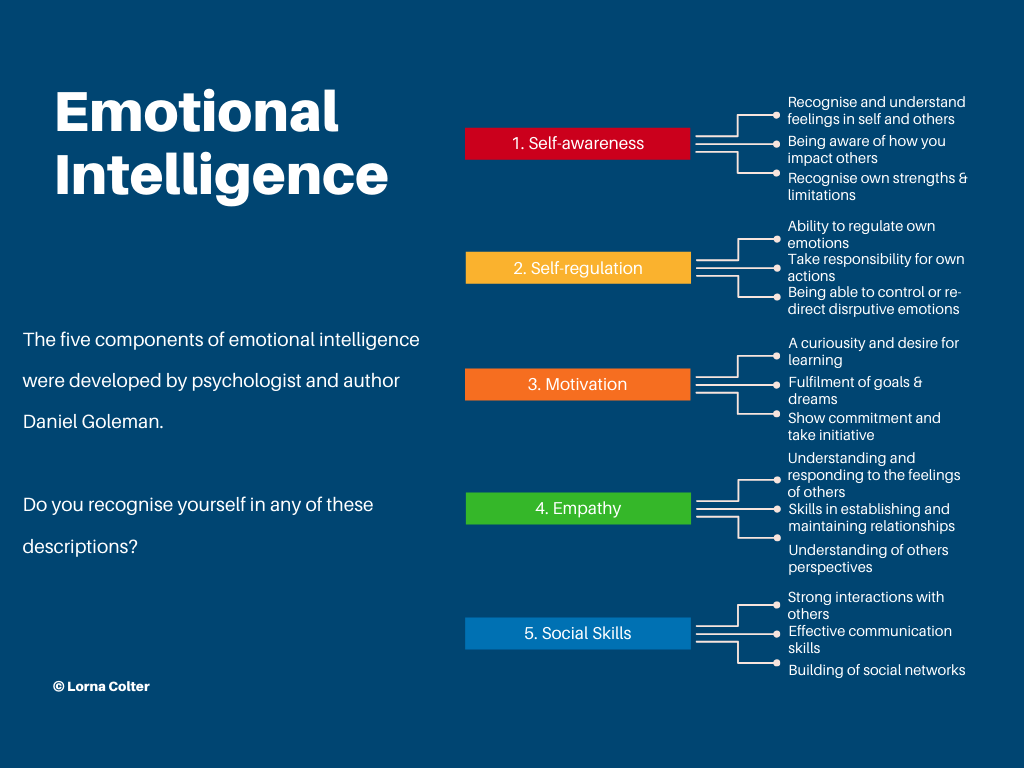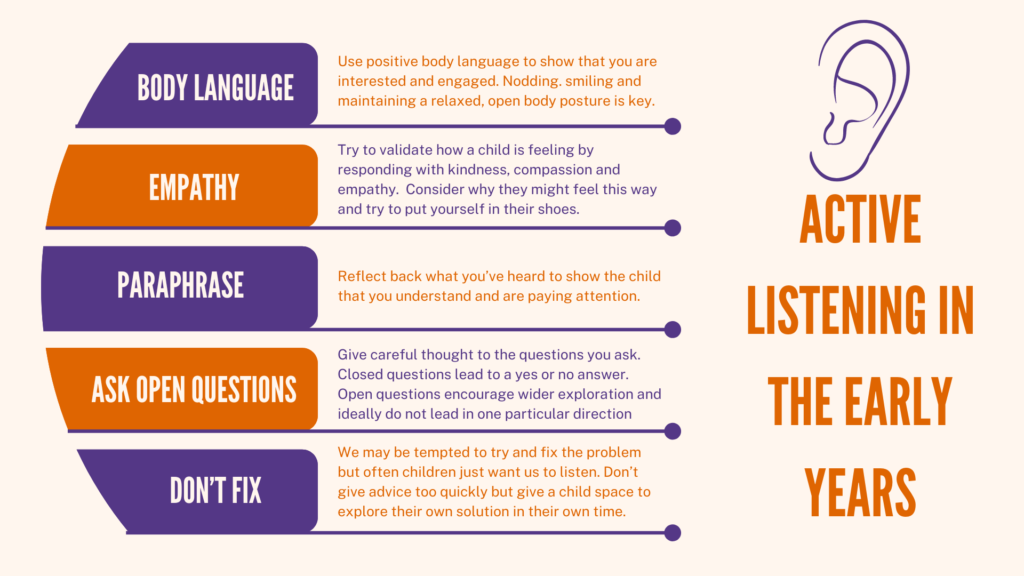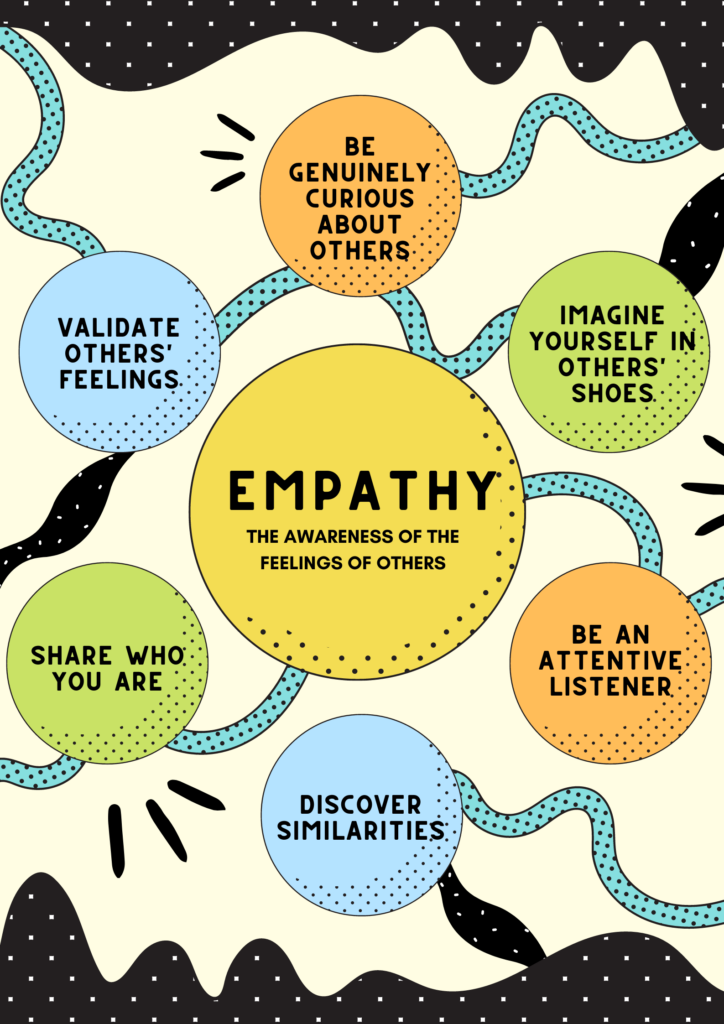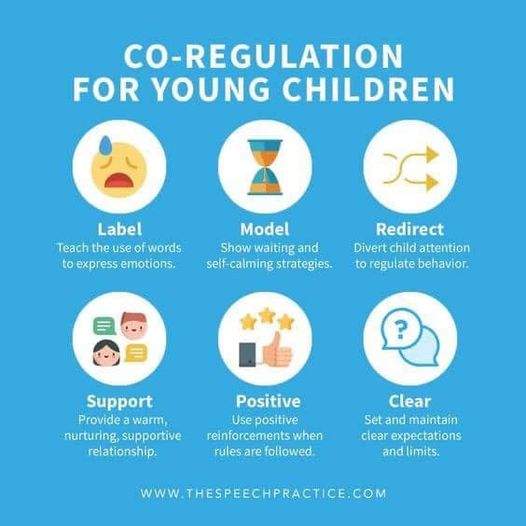Building Relationships
The key to being able to support the emotional wellbeing and mental health of children is the ability to build a strong, trusting relationship. Certain skills are needed to help establish and maintain this relationship and so that a child feels heard and understood. This sprint gives you some time to reflect on your own skillset and think about areas where you would like to develop. Learning the skills you need to communicate effectively with children and their families will make a big impact on how much support you are able to offer.
Let’s re-visit emotional intelligence. If we are to support others, we need to have a high level of self-awareness and take the time to consider our own emotional intelligence. Daniel Goleman identified five elements of emotional intelligence:


Stop and Reflect:
Consider the five components of emotional intelligence in relation to your professional practice.
- How do you rate yourself in each component of emotional intelligence? Rate 1-5 with 1 being where you feel least competent and 5 where you are most confident.
- How might you build skills in the area that you most struggle with?
Active Listening
It’s easy to define ourselves as a good listener but then actually spend a lot of the time thinking about what we are going to say next, rather than actually listening to what the person is sharing. Children need adults in their lives who will truly listen. This in itself will help promote emotional wellbeing. Watch the video below and notice how easy it is to get it wrong!
Bring to mind someone who you consider to be a good listener. What do they do? How do you know you are being listened to? Have a read of the following top tips to help you develop your active listening skills when working with children and families:

Image source: Lorna Colter
Empathy
Responding with empathy is a powerful tool to ensure that babies and children feel supported and understood. It can give a clear message that a child is not alone in facing any challenges and that you are tuning in to what’s behind their behaviour. Showing empathy can change the dynamic.
Empathy isn’t the same thing as sympathy. When you show sympathy, you may feel sorry for a child. You feel bad that something is upsetting or hard for them. Being empathetic allows you to validate a child’s feelings and experience through connection.
The image below outlines what empathy might look like in practice:

Modelling empathy, can encourage children to start to think about how others feel around them. You can start asking questions to help children reflect about their own feelings such as ‘How did you feel when you lost your teddy?’ ‘How did that story make you feel?’ Once children are able to express their own emotional reactions, begin asking questions about how other people may feel. ‘How do you think Jacob felt when you wouldn’t share the cars?’
Co-Regulation
Both emotional and cognitive self-regulation are needed for behavioural regulation. When children are experiencing overwhelming feelings, they can struggle to control their impulses or sustain attention. Co-regulation is a process where a trusted adult offers support and containment, when a child is feeling stressed or threatened. The role of the adult is to engage with them, stay calm and help soothe them.

Image source: www.thespeechpractice.com

Stop and Reflect:
Without a good understanding of ourselves and our skillset, we cannot be aware of what we are bringing to our role and might find there are barriers to building effective relationships with those we are trying to support. It might be helpful to ask yourself the following questions:
- What motivates us to want to support others?
- What do you identify as your key strengths?
- What might be the blocks or barriers to us being helpful?






